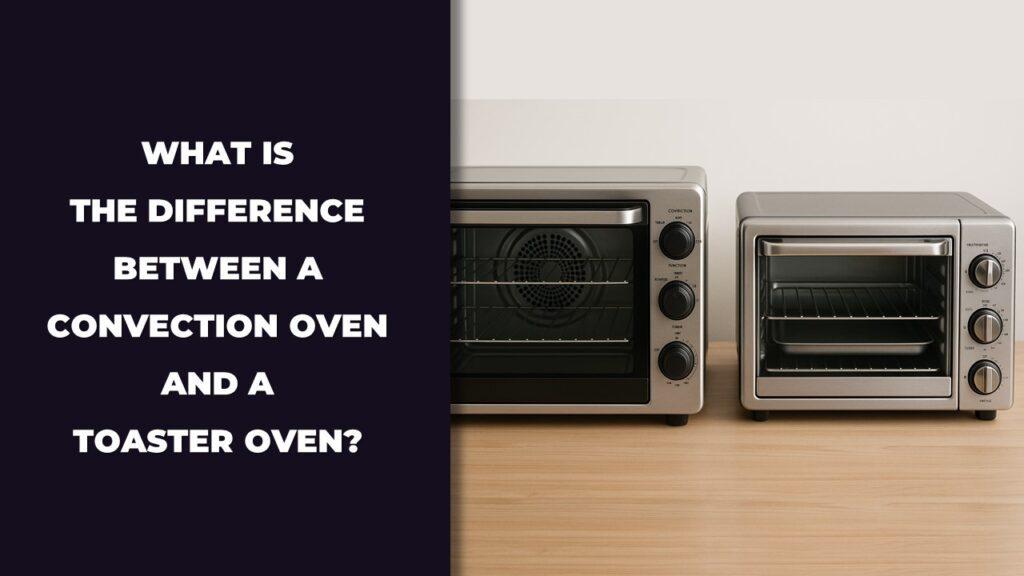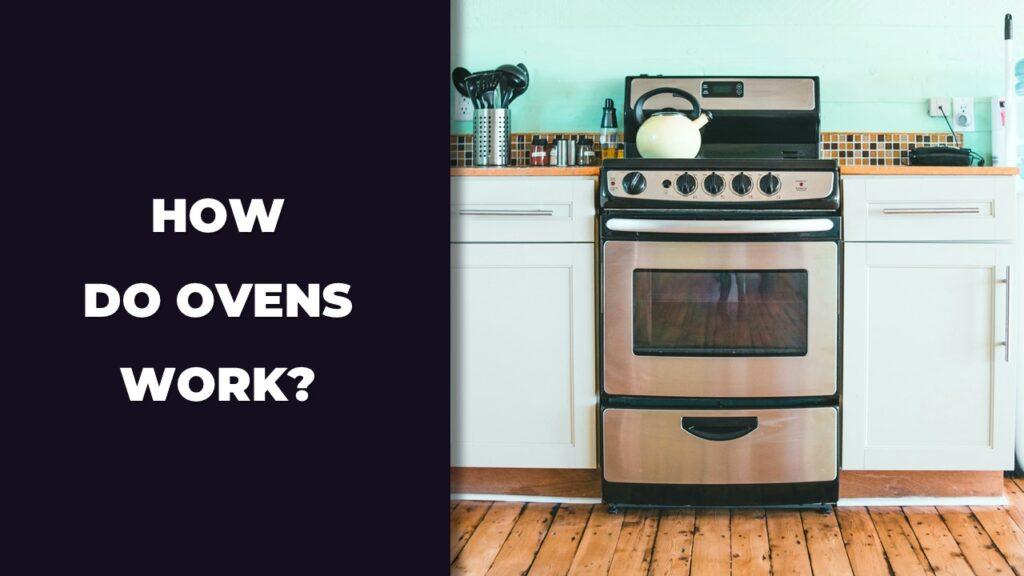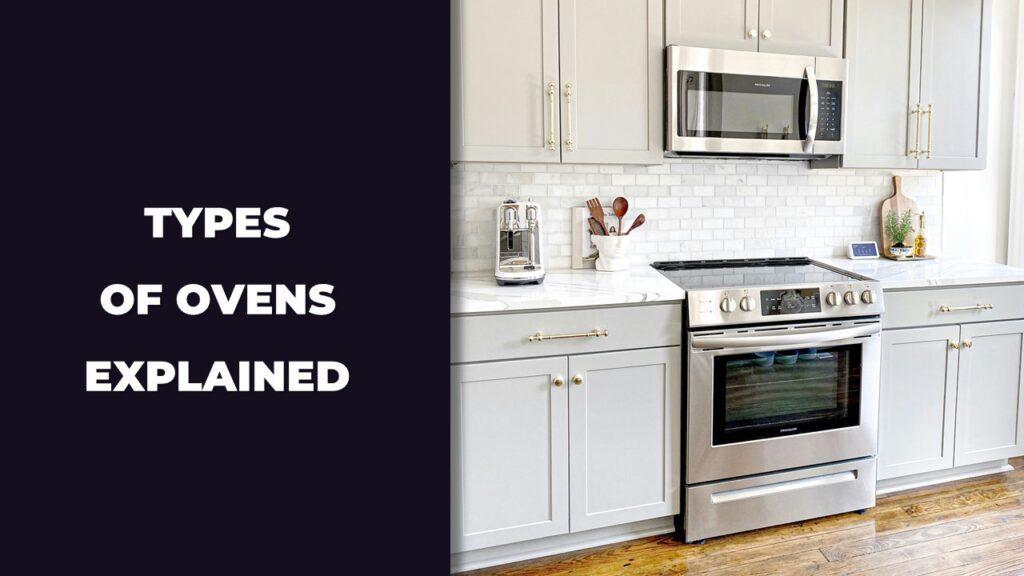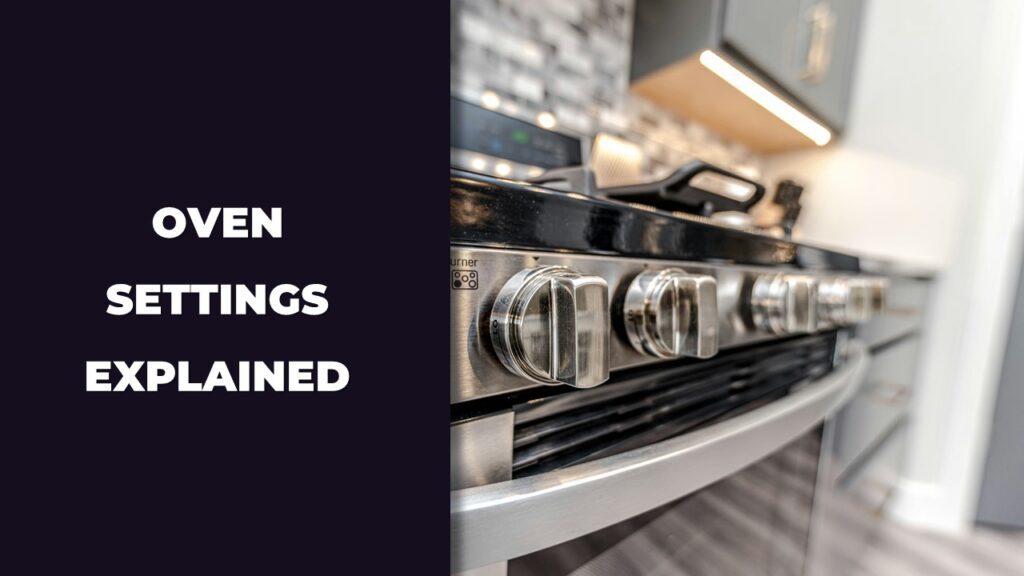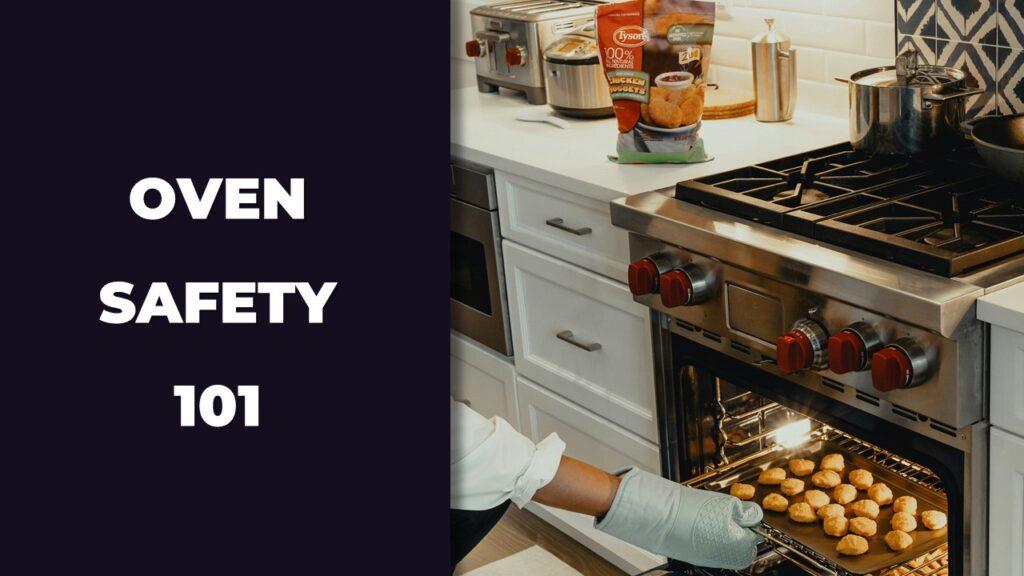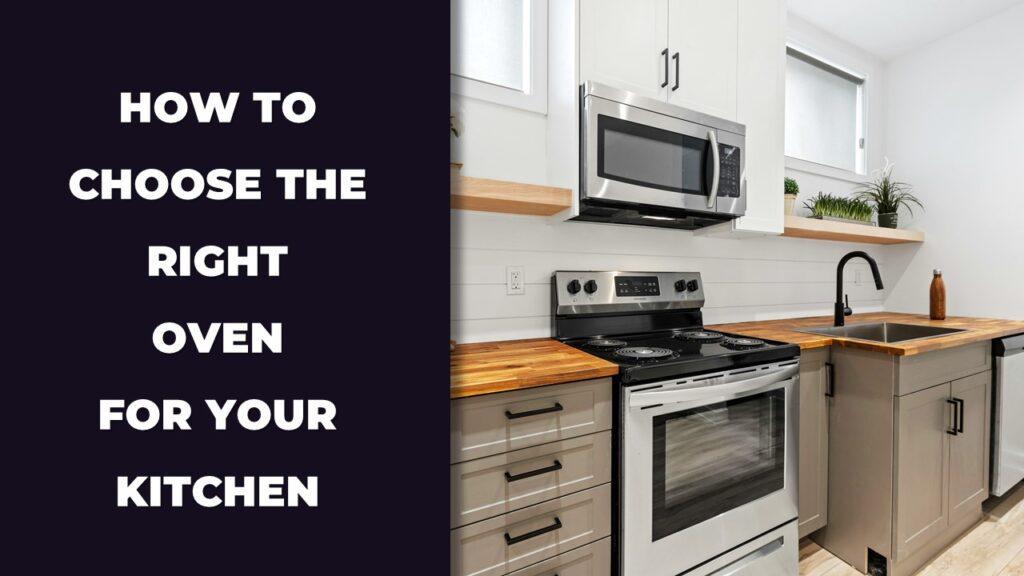
A smoking oven during cooking usually means something is burning, like leftover grease, old food bits, or even cleaning chemicals. It could also be a faulty heating element or just your brand-new oven burning off factory coating. Sometimes, it’s simply because the food is too close to the heat or the temperature’s cranked up too high.
In this article, we’re going to walk through all the common reasons your oven might be smoking, how to fix it, and when it’s time to call a professional. We’ll also share simple tips to keep the smoke away for good.
What Causes an Oven to Smoke While Cooking?
Reasons why an oven smokes during cooking:
- Burnt grease or leftover food spills
- Chemical cleaner residue inside the oven
- New oven coatings burning off
- Cooking at too high a temperature
- Food placed too close to the heating element
- Faulty or damaged heating element
- Poor oven ventilation or airflow issues
If your oven smokes every time you use it, one of these is likely the cause. Below, we’ll break each one down and explain how to identify the problem and fix it.
Grease and Food Residue Buildup Causes Smoke
Old grease, oil splatters, and food crumbs from previous meals often get left behind inside the oven. When the oven heats up again, these bits start to burn and create smoke.
How to tell:
- The smoke smells like burnt food or oil
- You notice brown or black patches inside the oven
- Smoke appears shortly after preheating starts
Let the oven cool completely. Remove racks and wipe off loose debris. For stubborn grease, apply a baking soda and water paste, let it sit for 20 minutes, then wipe it clean.
Leftover Oven Cleaner Residue Produces Fumes
If you recently cleaned your oven and it started smoking afterward, cleaning chemicals could be to blame. Some sprays leave behind residue that burns when heated.
How to fix it:
- Mix equal parts vinegar and water in a spray bottle
- Spray the entire interior—walls, door, floor, ceiling
- Wipe everything with a damp cloth and dry thoroughly
- Never spray directly on the heating elements
This is a common reason for ovens to smoke after deep cleaning.
New Oven Smells and Smoke During First Use
Brand-new ovens often smoke the first time they are used. This happens because factory oils and protective coatings burn off at high temperatures.
What you should do:
- Run the oven empty at 400°F for 45–60 minutes
- Repeat the process a second time if the smell or smoke lingers
- Keep windows open and use your kitchen fan if you have one
This “burn-in” process is normal and usually only needed once or twice.
High Cooking Temperatures Can Burn Food and Oils
Using high heat—especially when roasting fatty meats or baking with cheese—can cause oils to splatter and burn. This often leads to smoky ovens even when they’re clean.
Signs you’re overheating:
- Smoke starts during the cooking process, not at preheat
- You see bubbling grease or burnt edges
- The smell is sharp, like burnt fat
Try lowering your cooking temperature slightly. Place a drip tray under greasy foods to catch spills and prevent future messes.
Incorrect Food Placement Near Heating Element
When food is placed too close to the top or bottom heating elements, it can burn quickly and produce smoke. This is especially true when using broil mode.
Best practices:
- Keep at least 3 inches of space between your food and the element
- Use the middle rack for most baking tasks
- Always check which oven setting is active before placing your tray
A small adjustment in rack placement can often solve the issue.
Faulty or Damaged Heating Element Causing Smoke
A broken or damaged heating element can overheat, spark, or burn nearby food debris. This creates sudden smoke, strange smells, or even small flashes of light.
How to check safely:
- Turn off the oven and unplug it
- Look for cracks, dark spots, or bulging areas on the element
- If anything looks off, do not use the oven again
Call a technician to inspect and replace the part if needed. It’s not safe to use a malfunctioning heating element.
Poor Kitchen or Oven Ventilation Trapping Smoke
Sometimes, your oven isn’t the main issue—it’s the airflow. If smoke builds up quickly in your kitchen, you may have blocked oven vents or poor ventilation.
Things to check:
- Make sure air can flow freely behind and above the oven
- Use your range hood or fan when cooking
- Open a window if the kitchen fills with smoke often
Some ovens also have internal filters near the vents. These may need cleaning or replacing if clogged.
Is It Normal or Dangerous for an Oven to Smoke?
A little smoke from your oven can be normal, especially if it’s brand new, just cleaned, or has minor grease splatters. But if the smoke is thick, smells strange, or happens every time you cook, it could signal a safety issue. Knowing the difference can help you avoid bigger problems.
When Oven Smoke Is Considered Normal
There are a few harmless reasons your oven might smoke:
- New ovens often smoke during their first or second use
- Leftover cleaner residue can cause a bit of steam or white smoke
- Small grease splatters or crumbs burning off during preheat
- Broiling fatty foods close to the top element may give off some smoke
In these cases, the smoke usually stops on its own and doesn’t come with any strange odors, sparks, or sounds.
Warning Signs That the Smoke Is a Safety Issue
Smoke should never be ignored if it’s heavy, unusual in color, or smells like burning plastic or wiring. These signs may point to something more serious:
- Sparking or popping noises
- Burnt electrical or chemical smell
- Smoke that starts right away with no food inside
- Discolored or flickering heating element
- Persistent smoke even after cleaning the oven
If you notice any of these, stop using the oven right away and unplug it. Contact a repair technician before turning it back on.
Can a Smoking Oven Catch Fire or Cause Health Problems?
Yes, it’s possible—but rare. A smoking oven can cause a fire if:
- Grease builds up over time and catches fire
- Flammable residue like paper, foil, or plastic gets left inside
- A faulty element overheats or causes sparks
Breathing in smoke from burnt-on food or cleaning chemicals isn’t good either. It can irritate your eyes, throat, or lungs, especially for kids, pets, or anyone with breathing problems. Always ventilate your kitchen when smoke appears, and fix the cause as soon as you can.
How to Stop an Oven from Smoking During Cooking
Here is the step-by-step process to stop your oven from smoking:
- Turn off the oven and let it cool completely
- Take out the racks and remove any burnt food or debris
- Scrub away grease using a baking soda and water paste
- Wipe off leftover cleaning products with vinegar spray
- Check if the heating element looks damaged or burnt
- For new ovens or post-cleaning smoke, run an empty cycle
Let’s go through each step so you can handle it confidently and safely.
Step 1: Turn Off the Oven and Let It Cool
As soon as you notice smoke, stop cooking and switch the oven off. Keep the oven door closed at first to prevent smoke from spreading. Once it’s cool enough to touch, open the door slowly and let the smoke escape.
Step 2: Remove Racks and Any Burnt Debris
Take out the racks and check for anything burnt or stuck to the bottom. Crumbs, melted cheese, or oil spills often collect over time and smoke up when reheated.
Tip: Use a damp paper towel or sponge to wipe loose crumbs before deeper cleaning.
Step 3: Clean Grease and Spills Using Baking Soda Paste
If there’s visible grease or baked-on residue, make a cleaning paste:
- Mix 3 parts baking soda with 1 part water
- Apply the paste to greasy areas
- Let it sit for at least 20 minutes
- Wipe it off with a damp cloth
Avoid applying the paste directly to the heating elements.
Step 4: Eliminate Cleaner Residue with Vinegar Spray
If you used a commercial oven cleaner recently, it may be leaving behind fumes or smoke.
What to do:
- Spray equal parts vinegar and water across all interior surfaces
- Wipe thoroughly with a clean, damp cloth
- Dry the oven with a towel before using it again
This step helps neutralize and remove any leftover chemicals.
Step 5: Check Heating Element for Signs of Damage
Look closely at the heating element—both the top and bottom.
What to look for:
- Cracks, dark spots, or peeling coating
- Uneven glowing when turned on
- Any sign of sparks or buzzing
If anything looks off, unplug the oven and contact a technician. Don’t use the oven until it’s checked.
Step 6: Run an Empty Cycle for New or Cleaned Ovens
For brand-new ovens or after deep cleaning, run an empty high-heat cycle:
- Set the oven to 400°F
- Let it run for 45 to 60 minutes with nothing inside
- Repeat once if needed
This helps burn off any leftover oils or cleaning residue safely.
How to Prevent Oven Smoke
To keep your oven from smoking while cooking, clean spills right after they happen, use drip trays when baking greasy dishes, and make sure food isn’t too close to the heating elements. Skip chemical-heavy cleaners that leave behind fumes, and always cook in a well-ventilated space to clear out any lingering smoke.
Even if your oven is spotless, it only takes one missed splatter or poor setup to bring the smoke back. Here’s how to stop that from happening again.
Clean the Oven Regularly After Spills
Oven smoke often starts with small food bits or grease left behind after cooking. These leftovers slowly burn every time you heat the oven again.
To prevent this, clean up any spills or splatters once the oven cools. Wipe the inside using a damp cloth after messy meals, and do a deeper clean at least once a month. For tougher stains, spread a paste made of baking soda and water, let it sit for a while, then wipe it clean with a sponge. Staying on top of spills is one of the easiest ways to keep smoke away.
Use Oven Liners or Drip Trays for Greasy Dishes
Foods like roasts, casseroles, or cheesy bakes often bubble over or drip fat as they cook. When that grease hits the oven floor, it smokes fast.
You can stop this by placing a drip tray or foil-lined baking sheet on the rack below your dish. If you’re cooking something especially greasy, a non-stick oven liner works even better. These simple tools catch the mess before it hits the hot surface and save you a smoky surprise later.
Keep Food Away From Heating Elements
When food sits too close to the oven’s top or bottom heating elements, it can easily burn. This is especially common when using the broil setting or overloading the oven with tall pans.
To avoid this, always use the middle rack for most baking and roasting tasks. Make sure there’s at least two or three inches of space between the food and the heating elements. Giving your food the right distance from the heat helps it cook evenly, and keeps it from smoking.
Avoid Strong Chemical Cleaners That Leave Residue
Some oven cleaners leave behind a thin layer of chemicals, and when those heat up, they can smoke or give off a sharp odor.
Instead of using harsh sprays, try cleaning with natural options like a baking soda paste or a water and vinegar mix. After cleaning, wipe down every surface with a damp cloth and dry it fully. It’s especially important to avoid spraying anything near the heating elements, since that’s where residue tends to burn the fastest.
Improve Kitchen Ventilation While Cooking
Even if your oven is clean, steam and smoke can still build up if your kitchen doesn’t have good airflow.
You can fix this by turning on the range hood fan while the oven is running or cracking open a window nearby. Also, check the space behind your oven to make sure the built-in vents aren’t blocked. Keeping the air moving helps carry smoke and heat away, so it doesn’t fill your kitchen every time you bake.
When to Call a Technician for a Smoking Oven
Call a technician if your oven smokes after cleaning, smells like burning plastic, sparks, or shows flame issues in a gas model. These are not DIY problems.
If your oven keeps smoking and nothing you do fixes it, it’s time to get help. Here’s when to stop troubleshooting and call a professional:
Burning plastic smell or visible sparks
- Sparks during preheat or cooking
- Heating element glows unevenly or flickers
- Smells like melted wires or insulation
- Control panel overheats or breaker trips
Persistent smoke after a full cleaning
- Smoke starts with an empty oven
- No visible food or grease inside
- Buzzing, popping, or clicking sounds
- Past repairs didn’t fix the issue
Gas oven has a yellow or flickering flame
- Flame isn’t steady blue
- You smell gas, even when it’s off
- Smoke or soot around the burner
- Whooshing or popping during ignition
Don’t ignore these signs. Electrical and gas issues can be dangerous. A qualified technician can safely inspect and repair the problem before it turns into a serious hazard.
How to Prevent Oven Smoke
To prevent your oven from smoking, clean spills quickly, avoid placing food near heating elements, and cook in a well-ventilated space. Using drip trays, gentle cleaners, and proper rack placement can also reduce the chance of smoke during baking or roasting.
Stopping oven smoke before it starts is mostly about staying consistent with small habits. When you know what usually causes the problem, it becomes easier to prevent it the next time you cook.
Here are simple ways to keep your oven smoke-free:
- Wipe up spills and crumbs after each use once the oven cools down. Burnt leftovers are a common source of smoke.
- Use drip trays or foil-lined pans beneath greasy or messy dishes to catch overflow before it hits the oven floor.
- Keep food at least 2–3 inches away from the top and bottom heating elements to prevent scorching or burning.
- Avoid heavy-duty chemical sprays that leave behind residue. Use baking soda paste or vinegar for safer, cleaner results.
- Ventilate your kitchen while cooking by using your range hood or opening a window to let smoke escape faster.
Following these habits can save you from the stress of unexpected smoke—and save your dinner, too.
Conclusion
If you’ve ever opened your oven to find smoke pouring out, you’re not alone. Ovens can smoke during cooking for all kinds of reasons—leftover food residue, high heat, or even a new appliance breaking in. The good news is, most of these problems are easy to spot and fix with a bit of regular care.
We’ve covered the most common causes like grease buildup, cleaning chemical residue, food placement, and damaged heating elements. We also looked at when smoke is harmless and when it means trouble, especially if you smell burning wires or see yellow flames in a gas oven. Knowing when to clean, when to adjust your settings, and when to call a technician can make all the difference.
A smoking oven doesn’t always mean something’s broken, but it should never be ignored. By staying on top of simple maintenance, keeping your oven clean, and following proper cooking habits, you can stop smoke before it starts—and enjoy safer, more pleasant cooking every time.
Related FAQs
Why Does My Oven Smoke Every Time I Turn It On?
If your oven smokes every time you use it, it’s likely due to grease buildup, leftover food debris, or chemical residue from cleaners. Regular cleaning and using drip trays can help stop this from happening.
Is White Smoke Normal When Using a Brand-New Oven?
Yes, white smoke is normal the first few times you use a new oven. It’s caused by manufacturing oils and coatings burning off. Run the oven empty at high heat for 45–60 minutes to clear it out.
Can Oven Cleaner Cause Smoke and Fumes?
Yes, oven cleaner can leave residue that smokes and gives off fumes when the oven heats up. Always wipe down all surfaces with a vinegar and water mix and let it dry before using the oven again.
What Should I Do If My Gas Oven Is Smoking?
If your gas oven is smoking, check for yellow flames, soot buildup, or the smell of gas. Turn it off right away and call a licensed technician—gas issues should never be handled on your own.
Will the Smoke Affect the Taste or Safety of My Food?
Yes, oven smoke can make your food taste burnt or bitter. In some cases, it may also carry fumes from grease or cleaners, which isn’t safe to breathe or eat. Always find and fix the source before cooking again.

Max Fletcher is a self-taught electrician-turned-baker who combines technical know-how with a love for baking to help readers get the most from their ovens. Drawing on years of electrical experience and hands-on kitchen testing, he shares practical guides and reviews on oven performance, safety, and baking results, all with the heart of a family man who believes great food starts with understanding your tools.

